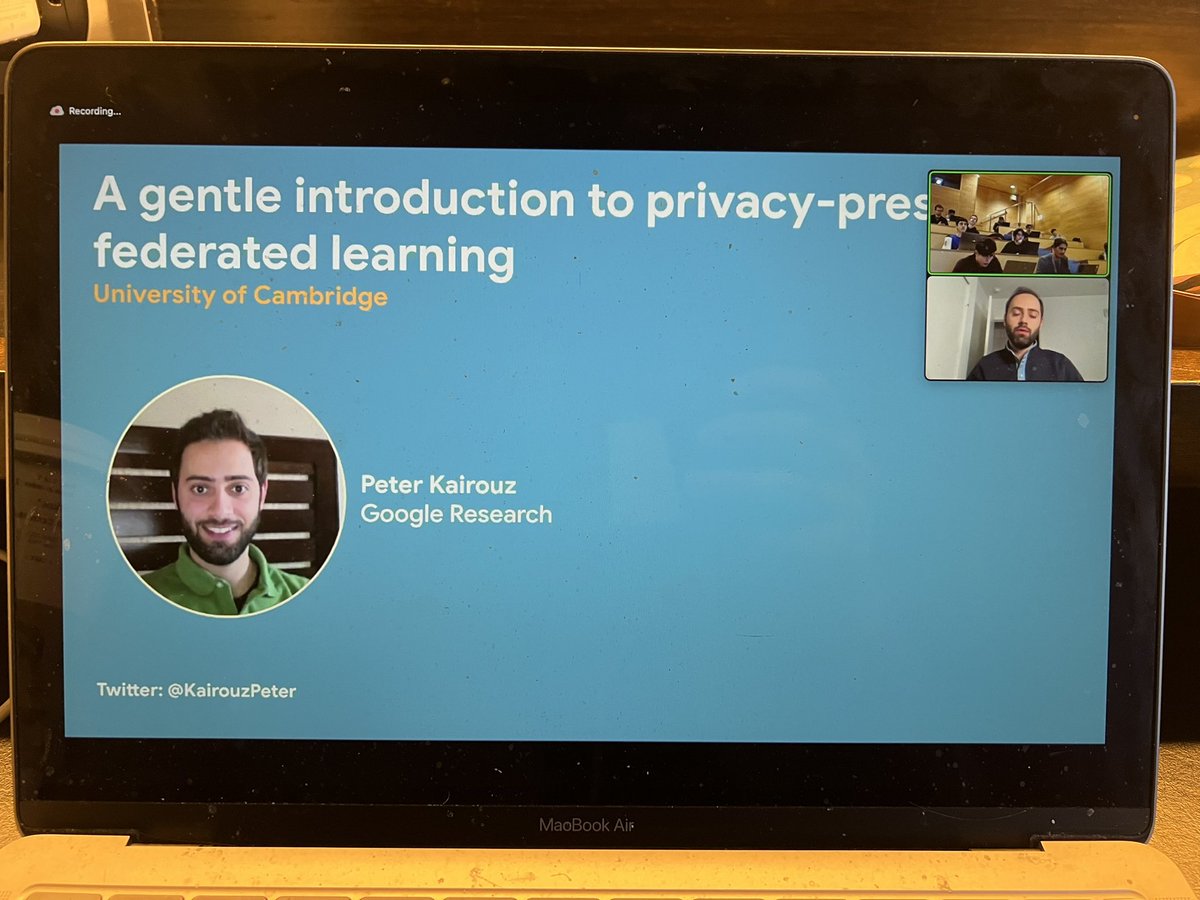
Peter Kairouz
@kairouzpeter
@GoogleAI researcher focusing on federated learning, security, and differential privacy.
ID: 1089903328987938816
https://kairouzp.github.io 28-01-2019 15:09:37
66 Tweet
1,1K Followers
147 Following


Big thanks to Peter Kairouz for his guest lecture at our Federated Learning course Cambridge Computer Science. Wonderful to see the theory and practice going on at Google's FL team.



I am on sabbatical at Google this academic year. Peter Kairouz and I are looking for a PhD student researcher this Spring / Summer to work on privacy attacks in large language models. If interested, please contact me directly by email and send your CV.






I'll be ICML Conference next week. Text me if you want to chat about trustworthy & efficient AI or data valuation 🙌 -Sat: Check out our workshops Theoretical Foundations of Foundation Models & Workshop on Data-centric Machine Learning Research -Thu 1:30-3 pm: arxiv.org/pdf/2405.02341 w/ Wei-Ning Chen Peter Kairouz Albert No Sewoong Oh and Zheng Xu👇





